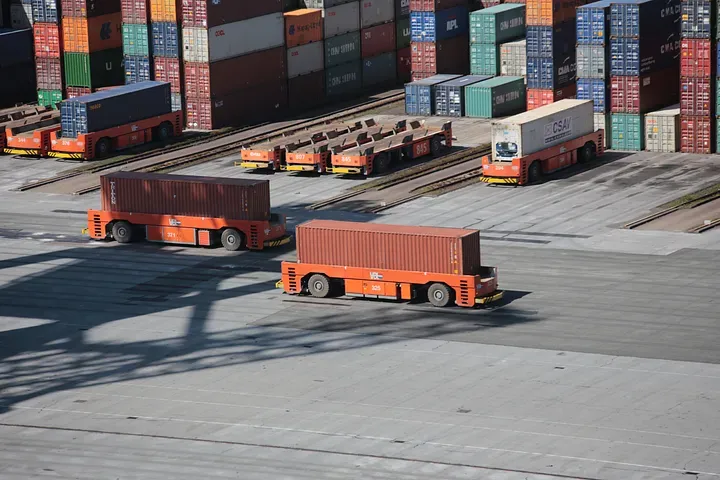Over $80 Billion Worth in Movement of Goods and Services on Africa's Roads.

80% of goods travel and 90% of passenger movement of sub-Saharan Africa’s movement and transportation is done by road. It is expected that infrastructure, as essential, would be developed and maintained accordingly. But this isn’t the case as a large number of roads in the region are unpaved making them barely usable as countries like the DRC, Liberia, Somalia, Burundi, and Madagascar have more than 80% of their roads unpaved (R.ROADS). These countries and more have a large number of their paved roads in need of repair or total reconstruction, either due to poor management, erosion and weathering, high traffic volume, and frequency. Countries like Nigeria, Kenya, Angola, Tanzania, and Ethiopia are some examples, which are also in search of sustainable measures to reduce the effects of these factors.
Road Accessibility is defined as the ease of movement to and from destinations. Time, effort, and cost spent are key factors that determine the level of accessibility of a road. The less time or effort spent the more accessible the road is and vice versa. The importance of access roads is not only essential for people’s movement but also for the movement of goods, services, and even agricultural produce within the region valued at US$69billion as of 2019. As businesses usually see a noticeable decrease in expenditure, the more accessible the roads used by them are. According to a working paper by the National Bureau of Economic Research (Tilman Graff) countries like Nigeria and Ethiopia with relatively high GDP in the region have more than 80% optimum accessibility to their road networks, and countries with less than 40% like Mali and Rwanda have GDP’s less than $50billion.
Notably, sub-Saharan African countries are identified among the least developed countries in the world. With more than 420 million of the world’s poor living in sub-Saharan Africa, the effect the region’s road infrastructure has on this number cannot be ignored (Aderogba. B). As the construction process of this infrastructure should have a near-instantaneous impact on the area it is being constructed, through job creation for locals, placing money in the hands of workers which will be used locally. The advantages after construction are even more with ease of movement for people, goods, and agricultural produce from rural to urban areas. Such road networks can help connect the national market, and accessibility to social services and even allow easier implementation of policies from the Centre government to the local authorities.
Still, companies and enterprises are looking to take advantage of the demand for accessibility by the majority of sub-Saharan Africa’s population. Some of these businesses offer cross-border movement and inter-state travel with the use of large buses or comfort coasters. Their services are not limited to people but also include packages and sometimes larger goods. In recent times, the desire and purchase of comfort rides in urban cities like Kampala, Lagos, Cairo, and Alger have seen a steady rise. As the stress of public transport and even bus rapid transport can be overwhelming sometimes. This has even seen regular motorists and car owners offering their cars for such services. Earning and supplementing their cash inflows.
The issues tagged to road infrastructure and accessibility in sub-Saharan Africa can not be ignored, but the solutions to them are available and the region is ready for them to be implemented. From road construction projects to traffic decongestion methods for urban areas, development should see an identifiable improvement. It is no coincidence that countries like Egypt, Algeria, and Morocco with the lowest percentage of unpaved roads can boast of high GDP and development(R.ROADS). Research shows that access to the all-weather road in an area in Ghana reduced poverty by 2.16% in 2015 when the roads were constructed and by 2019 poverty had been reduced by 2.59% in the area(AFDB 2021). This leads to not only economic benefits but better access to social services for this region. So the effects road infrastructure has on development should be noted and used to pursue growth in sub-Saharan Africa. A sizeable improvement in transport systems, accessibility, and mobility will better help the region reach sustainable levels of development.
But one of the major issues hindering such projects and developments is data. Some of the information and data available going back as far as 10 years ago. Some of the projects requiring construction as of then might be needing repairs or total reconstruction at present time. Information on urban areas such as the number of car users and owners is sometimes poorly collected if available. Still, with Rwazi and our community of 20000+ mappers, information and data collection no matter how large is broken down and collected in bits and pieces, then presented to you with the big picture you required.
REFERENCES
Aderogba, B. and Adegboye, A. (2019) Assessing the Impact of Road Infrastructure on Poverty Reduction in Developing Economies: The Case of Nigeria. Modern Economy — (Aderogba. B).
African Development Bank-supported road project stimulates improved health, education, and household incomes in northern Ghana, December 2021 — (AFDB 2021).
Rural Roads –roles, challenges and solutions for Sub-Saharan Africa’s sustainable development, December 2019 — (R.ROADS).
Figures of the week: Africa’s spatial distribution of road infrastructure, Leo Holtz and Chris Heitzig, March 2021 — (Tilman Graff).
By Ibukun Ayo-Ogunmuko — Content Writer , Rwazi INC





